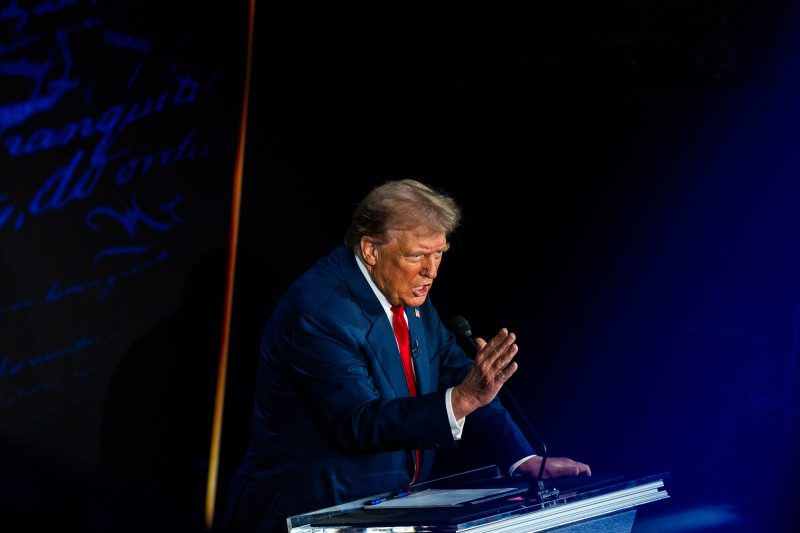In recent years, conspiracy theories have gained significant traction, fueled by political agendas and propagated through mainstream and social media platforms. The nexus of conspiracy theories and politics has become particularly pronounced within the Republican Party, led by former President Donald Trump and GOP members. This has had far-reaching consequences, leading to the spread of misinformation and even influencing people’s behaviors.
The pet-eating conspiracy theory is a stark example of how misinformation can quickly spiral out of control. The notion that individuals are resorting to eating pets due to supposed food shortages has been debunked numerous times. However, the dissemination of such false narratives serves to stoke fear and sow discord among the population. As a result, individuals may act irrationally or make decisions based on unfounded claims, ultimately causing harm to themselves or others.
Furthermore, the concept of a rigged debate, as put forth by Trump and GOP members, undermines the very foundation of democracy. By casting doubt on the electoral process and perpetuating baseless claims of voter fraud, the public’s trust in the electoral system is eroded. This not only has immediate consequences, such as inciting violence and unrest, but also poses a long-term threat to the stability and legitimacy of the electoral process.
The QAnon conspiracy theory represents a dangerous amalgamation of political extremism and misinformation. With its unfounded claims of a secret cabal of elites plotting against the former President, QAnon has gained a significant following, including among some GOP members. The propagation of QAnon conspiracy theories not only serves to further polarize an already divided populace but also poses a real threat to public safety.
One of the most troubling aspects of the intertwining of conspiracy theories and politics is the impact it has on people’s perceptions of reality. When individuals are constantly bombarded with false information and alternative facts, it becomes increasingly challenging to distinguish truth from fiction. This has the potential to warp individuals’ worldviews, leading them to make decisions based on faulty premises and undermining the very fabric of society.
In conclusion, the symbiotic relationship between conspiracy theories and politics, particularly within the Republican Party, poses a grave threat to the integrity of public discourse and democratic institutions. By perpetuating false narratives and promoting unfounded claims, political leaders risk eroding public trust, inciting unrest, and perpetuating divisions within society. It is imperative that individuals remain vigilant in critically evaluating information and holding political leaders accountable for their words and actions, lest we devolve further into a society governed by fear and falsehoods.


























